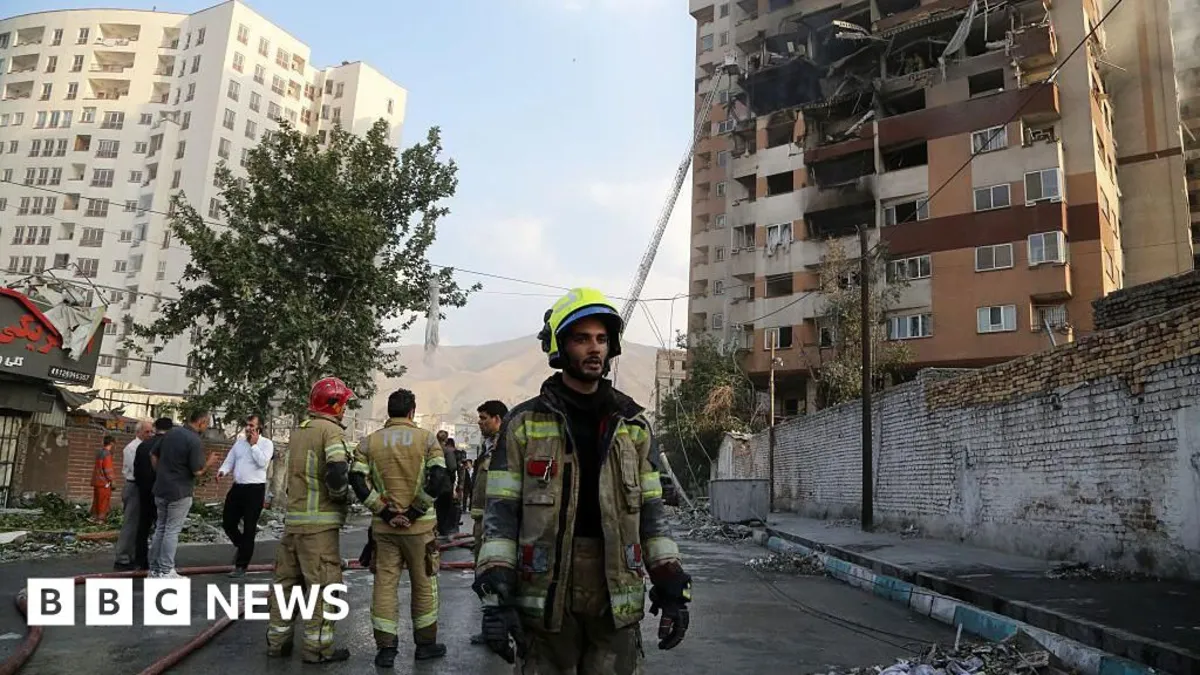
In a bold move, Israeli Prime Minister Benjamin Netanyahu has launched unprecedented attacks aimed at what Israel describes as an existential threat posed by Iran's nuclear capabilities. However, these strikes serve a dual purpose: Netanyahu is also pursuing a wider agenda of regime change in Tehran. The Israeli leader hopes that these military actions could spark a chain reaction, inciting unrest that ultimately leads to the downfall of the Islamic Republic.
In a statement released on Friday evening, Netanyahu urged the Iranian populace to "unite around its flag and its historic legacy" and to stand up for their freedom against what he termed an "evil and oppressive regime." This appeal resonates with many Iranians who are discontent with their nation's economic struggles, restrictions on freedom of speech, and inadequate women's rights and minority rights. The Israeli military's offensive poses a significant challenge to Iran's leadership, having already resulted in the deaths of key military figures, including the commander of the Iranian Revolutionary Guard Corps (IRGC).
As tensions escalate, Iran has retaliated by launching missile strikes against various military targets. Following these attacks, Netanyahu declared that "more is on the way," indicating that additional Iranian leaders could be targeted. The Israeli government appears to be banking on the idea that these military actions will destabilize the regime and potentially lead to a popular uprising. However, this strategy is fraught with risks, as there is no concrete evidence to suggest that such a chain reaction will occur.
Even if unrest does emerge, the outcome remains uncertain. The current power dynamics in Iran are predominantly controlled by hardliners within the IRGC and other unelected bodies. These factions are already in power and could respond to any destabilization by adopting an even more confrontational stance. Alternatively, a regime collapse could plunge the nation into chaos, affecting the stability of the broader Middle East.
Israel’s ideal scenario appears to be the emergence of a friendly force to replace the current regime. However, the fragmented nature of Iranian opposition forces complicates this vision. Following the 2022 protests labeled the Woman Life Freedom movement, various opposition groups attempted to form a coalition. Unfortunately, internal disagreements regarding leadership and future governance ideas led to the coalition's disintegration.
Among the potential opposition figures, Israel may favor Reza Pahlavi, the son of Iran's last Shah, who has been actively seeking international support for regime change and has even visited Israel. Despite gaining some traction among Iranians, it remains unclear whether he could effectively lead a movement for change. Another notable group is the Mujahideen-e Khalq (MEK), which advocates for the overthrow of the Islamic Republic but is opposed to a return to monarchy. Although the MEK has historical ties to the U.S. political sphere, its influence has waned compared to previous years.
As both nations navigate this precarious situation, it is essential to consider Iran's possible endgame. While Iran has targeted Israeli interests in the past, it currently faces limited options. Engaging in negotiations with the U.S. could be perceived as a sign of weakness, while continuing retaliatory strikes against Israel could provoke further Israeli military responses. Iran has also threatened to target U.S. bases in the region, but such actions would escalate the conflict dramatically, which Tehran likely wishes to avoid.
In conclusion, the unfolding events present a complex scenario for both Israel and Iran. The repercussions of these military strikes are yet to be fully understood, and as tensions remain high, the potential for significant change looms on the horizon.